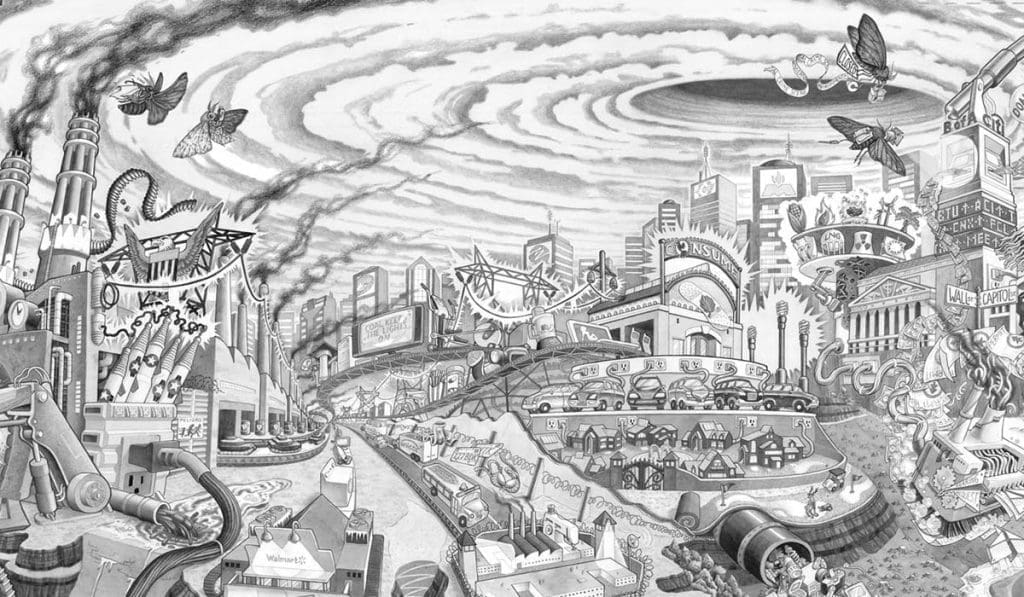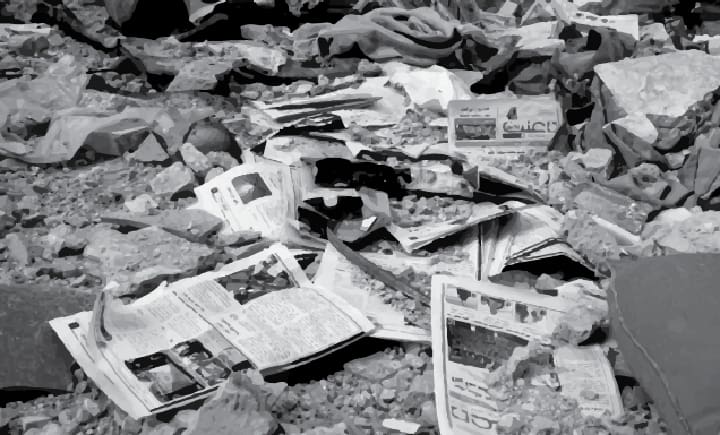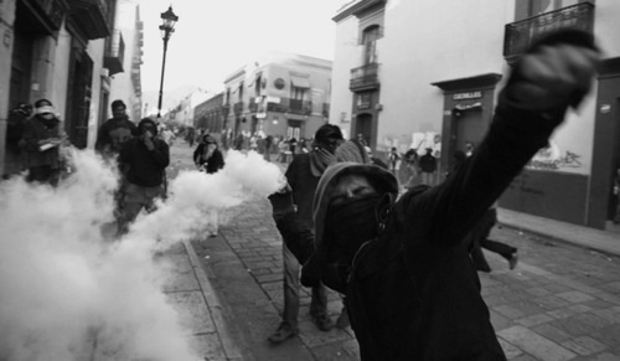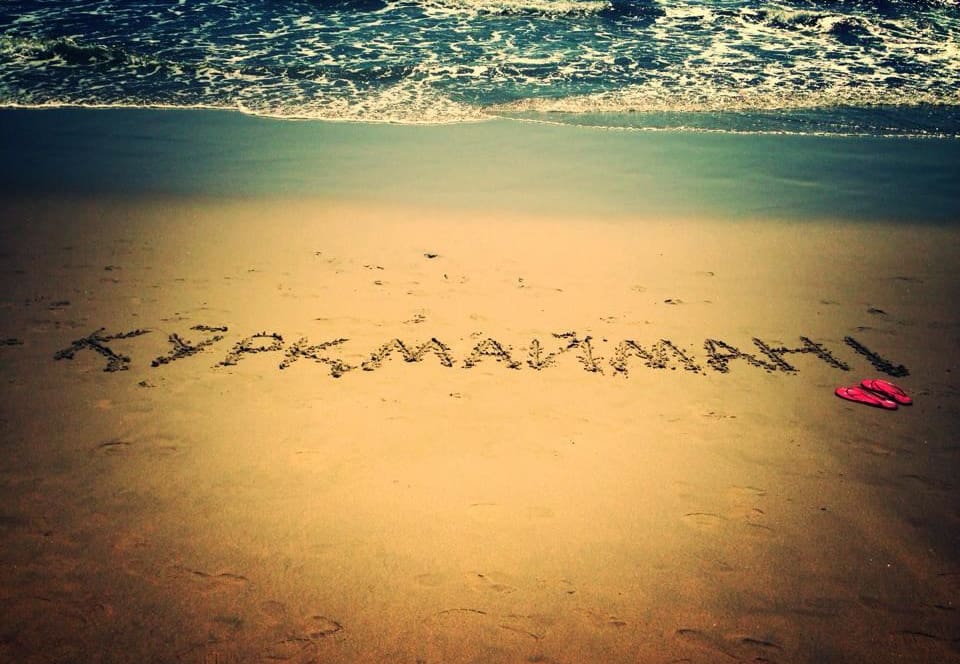Transcribed from the 27 July 2019 episode of This is Hell! Radio (Chicago) and printed with permission. Edited for space and readability. Listen to the whole interview:
Global capitalism is in deep crisis. Inequalities are simply unprecedented. We’re pushing full steam towards war. We’re facing a global police state. The experience of the majority of humanity is in direct contradiction to claims that global capitalism is benefiting humanity.
Chuck Mertz: Capitalist globalization is having a devastating effect on our lives and on our planet, but it cannot be effectively addressed unless we understand how capitalist globalization has changed capitalism. Here to help us understand, so we can do something about this scourge on our planet, sociologist and award-winning writer William I. Robinson is author of Into the Tempest: Essays on the New Global Capitalism.
Welcome to This is Hell!, William.
William I. Robinson: Pleasure to be on, and thank you for having me.
CM: You write, “Humanity stands at a crossroads: global warming and environmental destruction, unprecedented social inequalities, the increasingly difficult struggle for survival of billions of people around the world, escalating social strife, military conflict, and the growing threat of nuclear war. All of these threaten the collapse of global civilization, and even our annihilation and mass extinction. We truly face a crisis of humanity. Our very survival depends on us at the very least curbing the excesses of the out-of-control system of global capitalism, if not its outright overthrow.”
But that would mean that global capitalism would have to be recognized as the cause of all our problems, and plenty of people still believe it will be our savior. To you, what explains why global capitalism hasn’t been held responsible for all the calamities we are facing today, as well as all those we will soon face in the not-so-far-off future? Why is the connection between society’s problems and global capitalism seemingly avoided?
WR: The people who are in charge of our world society are what I call the transnational capitalist class—agents in the state, the corporate media, Hollywood, and so forth. This is what we call hegemony. We’ve all been socialized into a capitalist system which we’ve been told is normal, naturalized, the best thing for humanity. Global capitalism is in deep crisis. Inequalities are simply unprecedented. We’re pushing full steam towards war. We’re facing what I call a global police state. The experience of the majority of humanity is in direct contradiction to these claims that global capitalism is benefiting humanity and is the best system we could possibly have.
It is true that perhaps most people around the world think of global capitalism as ‘just the way it is,’ you can’t do anything about it, or it’s the preferable system. But I do want to point out that the anticapitalist critique, and in fact socialism, is becoming more and more popular around the world, because it’s clear to a majority of people in the United States and around the world that global capitalism is leading us towards complete disaster.
The hegemony of global capitalism is cracking. That’s part of the crisis that we face: the legitimacy crisis of the US state (and of states around the world that defend and push global capitalism) is now so severe that it also helps us explain, ironically, the rise of Trumpism and what I call twenty-first century fascism.
It’s really important to see that the headlines that concern us so much at this point—for instance the brutal war against migrants and refugees—are part of the rise of this new globalized capitalism, and part of the crisis of global capitalism.
CM: You write, “The good news is that mass struggles against the ravages of global capitalism are breaking out everywhere. Waves of resistance, often followed by repression and co-optation, have been spreading especially since the global financial collapse of 2008.”
What does it reveal to you about capitalism when it is defended by nationalists, white supremacists, and fascists?
WR: We have to push back. That’s the critical centrality of these resistance movements around the world. In order to make those resistance movement effective, we need to understand that we’re up against the new global capitalism, and also we need to link those resistance movements across borders. We can’t confront this system just in our own countries. We need to link up around the world.
But here’s the thing. I’ve developed this idea of a global police state. What I mean by global police state are three things. First, we’re seeing worldwide (obviously this is critically clear in the United States, but it’s all over the world) ever more omnipresent systems of mass social control, of repression, of warfare. They’re being promoted by the ruling group for the purpose of either containing the real or potential rebellion of the downwardly mobile global working classes—of “surplus humanity,” those who have been locked out of the global economy and made surplus, made marginal.
The second thing I mean by global police state is how the global economy itself is based more and more on the development and the deployment of these systems—of warfare, of social control, and of repression—just as a means of making profit, and continues to accumulate capital in the face of stagnation in the global economy. This is what I call militarized accumulation, or accumulation by repression. Let me give you one example out of many. Every time a migrant coming from Central America or Mexico is thrown into an immigrant detention center—those centers are in the majority now run by private for-profit corporations. Many of your listeners know that. Each time an immigrant spends one night in that facility, the corporation gets seven hundred dollars from the US government. Seven hundred dollars for one night for an immigrant locked up. Of course, that comes from working people’s taxes.
Here is the thing. That means that these private detention companies such as Corrections Corporation of America (they have now changed their name to CoreCivic) and GeoGroup have it in their economic and class interest to launch a war of repression against immigrants and refugees, and to support Trump to do so. When Trump was elected, the share values of GeoGroup and CCA went up fifty percent overnight, because Trump had promised this war against immigrants. Here’s another dimension to that: these companies are traded on Wall Street—that means Chinese investors, European investors, anyone who wants to can simply go to their computer and buy shares in CCA, a company with an objective interest in a war on immigrants.
We are at a crossroads. Either we confront global capitalism or take it in a different direction, or we are going descend into war and fascism. We’re really living at a critical moment. We’re facing a crisis of humanity.
To go back to the point, we have this global police state. The first dimension of it are these expanding systems of repression, social control, and warfare pushing us towards international war. The second is how the deployment and development of these systems is critical to the transnational capitalist class making profits—what I call militarized accumulation or accumulation by repression. But the third dimension of the global police state is that given these inequalities—one percent of humanity has fifty percent of the world’s wealth, twenty percent of humanity has ninety-five percent of the world’s wealth—very simply, we’re seeing the deterioration of democratic political systems and the rise of twenty-first century fascist political systems in order to contain the explosive rebellion and contradictions of those kinds of inequalities and the struggle for simple survival by the majority of humanity.
So we are at this crossroads. Either we confront this global capitalism or take it in a different direction, or we are going descend into war and fascism. We’re really living at a critical moment, and that’s one of the reasons I call what we’re facing a crisis of humanity.
CM: You point out how in 2003 the invasion of Iraq was almost universally interpreted as an effort by the United States to shore up its empire against imperial rivals. But you point out that in your view, “To the contrary, that the United States undertook the invasion to shore up and advance a crisis-ridden global capitalism on behalf of a transnational ruling class was met with derision among more than a few on the left.”
To shore up and advance a crisis-ridden global capitalism on behalf of a transnational ruling class—who is that transnational ruling class? Who are our new rulers that the Iraq war was fought to support?
WR: Critically important. This will be a little bit technical but easy to understand: part of the crisis of global capitalism obviously is existential—we’re facing ecological collapse and species extinction—and part of it is a political crisis, one of legitimacy. But the third dimension of this crisis is what we call a structural crisis of over-accumulation. That’s a complex concept, but it simply means that corporations have been amassing enormous amounts of profits. Just this morning I was reading an article in the most recent issue of The Economist. Listen to this quote: “Over the past twenty-five years, America’s stock has soared. This long bull run has rested on a boom in corporate profits. The worldwide earnings of American-based firms, whether listed or not, has risen 455% over the period, and it’s now 35% above the long term average relative to GDP.”
What that means is that worldwide, transnational capitalists—the giant corporations that run the global economy and impose their interests on states and governments everywhere—have so much accumulated profits and wealth they don’t know what to do with it. And in the capitalist system, they can’t just sit on it and leave it idle. They have to reinvest it to constantly make more profit. That’s the nature of capitalism. It’s like riding a bicycle: you stop pedaling, it falls over. You stop accumulating more and more profit, and capitalism enters a structural crisis that I characterize as over-accumulation.
The pressures demand governments open up opportunities for profit-making around the world. One way to do that: wage a war on immigrants. The other way is giant wars, such as the invasion of Iraq in 2003. In my analysis, the key thing driving that war was to massively open up new profit-making opportunities, open up Iraq to transnational corporate capital—to the transnational capitalist class.
My critics said, well, no, it was because the US wanted to keep out its rivals in China, Russia, and Europe. But that clearly was not true. The US invaded and set up a colonial administration, an occupation administration. Listeners who are a little older might remember that China was against that invasion. France was against that invasion. Russia was against that invasion. But what happened when the US invaded and occupied Iraq? They announced immediately, to investors all over the world: “Anyone can come and invest. Please feel free to come and invest in Iraq. Our military will give you protection and ensure your investment.” And what were the first oil companies to invest in and help privatize Iraqi oil? It was the French company Total, and it was the Chinese state oil company. They were the first two to grab up oil fields under the protection of the US military.
What that tells us is that we’re in a new phase of capitalism where specific governments representing certain bases—whether they’re rightwing social bases or leftwing social bases—are pushing the interests of the integrated transnational capitalist class, trying to open up opportunities worldwide for corporations to continue making profits. That means waging war on the global poor, the global dispossessed, the global working class.
This includes austerity in the United States! Trump just passed a massive tax bill. Some very confused portions of the population of working and poor people thought it would benefit them. But we know that it represents a massive transfer of wealth from poor people and workers in the United States upwards to the rich and corporations. Again, Trump has a discourse of rightwing nationalism, economic nationalism, but his actual policies are in defense of the transnational capitalist class and against poor people and workers, even though some of those poor people and workers support him because they’ve been whipped up by racism and national chauvinism and by the belief that he’s going to improve their situation.
CM: Does that hate, then, distract them from his actual policies?
WR: Of course. That’s exactly what we’re seeing. Forty-seven million people voted for Trump. Obviously among those forty-seven million there were the wealthy who benefited from Trump’s tax cuts and from everything else he’s done. But the vast majority are completely distracted from seeing why it is that they are increasingly struggling for survival in the United States and by extension around the world. Why are they facing an increasingly precarious situation? Why is there an opioid epidemic?
I’ll take it one level deeper, to the Italian socialist activist and political thinker Antonio Gramsci. He is a really important theorist for helping understand what’s going on in the twenty-first century. His big theory was of ideological and cultural hegemony. He says that ruling groups cannot rule by force alone. Of course we’re seeing force right now, with the global police state, all over. But they also have to rule by cultural hegemony, by convincing a significant portion of the population that the system is in their interests, and to conform to the ideas and beliefs of the dominant system.
We’re seeing that hegemony is still very much active among portions of the population of the United States and worldwide. Just to reiterate: that hegemony is in crisis, which is why the ruling groups are turning towards the global police state, more outright repression, and twenty-first century fascism.
Economic nationalism might be spewing out of the mouth of Donald Trump and far-right forces in Europe (and they’re doing that to whip up their social base), but economic nationalism is not in the interests of the transnational capitalist class.
CM: You write, “Globalization has increasingly eroded national boundaries and made it structurally impossible for individual nations to sustain independent or even autonomous economies, polities, and social structures. Nation-states are no longer appropriate units of analysis.”
If that’s the case, then why are nations like the US and the EU member states doubling down on reinforcing if not closing national borders? Does one action contradict the other?
WR: Everything about global capitalism is contradictory. That’s the nature of our universe. Everything is driven by contradictions. National borders are not disappearing. They’ve disappeared for transnational capital, for corporations. Free trade agreements, the World Trade Organization, everything that’s taken place and continues to take place is bringing down borders for capital, for the ruling groups, for the corporations. But national borders must be rigidly reinforced for workers and poor people, for migrants and refugees. Reinforcing national borders at that level is an element of the social and political control of the ruling groups worldwide.
There’s something else going on that makes the nation-state still relevant, and that, to reiterate, is workers in Europe supporting far-right and neofascist parties, or Brexit; and workers and poor people in the United States supporting Trumpism (with nationalism, racism, and xenophobia whipped up from above). Once again, if they identified who their enemy really is, they would not support global capitalism. But reinforcing national borders against poor people protects global capitalism from the deeper challenge from below.
I want to point out something else here with regard to the confusion that people feel when they see national borders or the discourse of economic nationalism and think that this is one country competing against another country. Let’s look at this for a moment, go behind the headlines. Trump has imposed tariffs on steel and a bunch of other products. But when Trump imposes tariffs on products coming from China, for instance, or on steel coming from Europe, those tariffs are not affecting any Chinese or European person. They are affecting transnational corporations that are scattered all around the world.
Inside the United States, the companies benefiting from tariffs are transnational companies. Trump famously said steel is a symbol of the United States and we have to protect US steel, so we impose steel tariffs. But who is the biggest investor in the company called US Steel? The Indian conglomerate called Mittal Steel. A Mittal Steel spokesperson was interviewed in the Los Angeles Times, and said they were benefiting wonderfully from these tariffs that Trump imposed. Capitalists from India, capitalists from China, capitalists from Brazil, from Europe—anywhere in the world—who are invested inside the United States benefited from those tariffs.
Meanwhile capitalists investing in Chinese factories (our iPads and iPhones are made in those factories) are not benefiting from the trade war. What I’m trying to get at is that economic nationalism might be spewing out of the mouth of Donald Trump and far-right forces in Europe (and they’re doing that to whip up their social base, as we were discussing) but economic nationalism is not in the interests of the transnational capitalist class.
Listeners will be familiar with the Koch brothers, the far-right billionaire brothers who have supported every rightwing cause. The Koch brothers came out against Trump’s economic nationalism, and they have already invested thirty million dollars in a campaign to oppose US tariffs. That tells us that it’s not capitalists worldwide who are pushing this nationalism—it’s the contradictions of the system. The ruling political groups need to organize economic nationalism and racism and so forth to secure a social base, lest there be mass rebellions against the system itself.
CM: You write, “Transnational capital and its principal institutional agent, the global corporation, are able to exploit an antiquated nation-state interstate system to wring further concessions from global labor. The continued separation of the world into nation-states creates a central condition for the power of transnational capital.”
Is nationalism, then, a divide-and-conquer tactic against labor?
WR: Absolutely. We were talking about how borders have come down for capital but remain rigidly in place for working and poor people around the world. It’s really sad that a significant portion of organized labor in the United States, for instance, fall for the economic nationalism of Trump which is a farce. It doesn’t represent the interests of working people.
One of the things about capitalism—this is not new with globalized capitalism, but now it’s more intense than ever—is that it places working people in competition with one another. This can be inside the nation-state, people competing for jobs and so forth. Another aspect of the crisis of humanity is that we’ve lost what it means to be human, to cooperate and reciprocate with one another, because we’re all placed in cutthroat competition just to survive. That’s why white workers, downwardly mobile in the United States, see immigrant workers as competition, for instance.
With global capitalism, that competition—which fuels nationalism—takes place at the worldwide level now. In the United States, for instance, unions and workers won higher wages, better working conditions, protections, pensions, and so forth, so the corporations said okay, we’re going to Mexico. Then Mexican workers fight against that, and they say, you want those benefits? Well, we’re going to Vietnam, where wages are even lower and where there’s a repressive government which will repress trade unions.
So working classes in each country compete with one another. The ruling groups are able to manipulate that through the discourse of economic nationalism and social nationalism, and national chauvinism, and of course racism. The whole discussion of globalization started in the late twentieth century with de-industrialization: ‘runaway factories,’ industries going abroad to find cheaper wages. Workers who lose their well-paid industrial jobs might then ask for economic nationalism. But the ruling groups do not use economic nationalism to help those workers. In fact, they simply use discourses of economic nationalism, racism, and national chauvinism to continue to globalize.
CM: Is it fair of me to get from your writing that what capitalist globalization does is make the public private and the private public?
Corporations controlling culture, ideology, filmmaking, and the internet is reducing us increasingly to a venal and dehumanizing corporate culture of consumerism, individualism, and narcissism.
WR: Let me try and understand that. It makes the public private, absolutely. Seventeen globally interconnected financial conglomerates control two-thirds of the global economy. That’s about four hundred people at the helm of those financial conglomerates. So the public becomes privatized in every way. Your listeners will be familiar with the term neoliberalism. Neoliberalism has been about privatizing everything: turning everything over to transnational corporate capitalism and imposing austerity on the rest. Absolutely, the public is made private.
Also the public political sphere is made private, for reasons we’ve been discussing. If you’ve got economic power, you control politics, even though people can vote. I can say I hate Trump and he should be impeached, but if a mass movement starts to use their freedom of speech to change the system, you bet there’s going to be mass repression, and control of that freedom of speech. That’s why whistleblowers and the press are under attack. So again, absolutely the public is made private.
Is the private made public? Globalized capitalism dates back to the 1970s, so it’s been around for fifty years now, and it’s deepening, it’s intensifying, and it’s in crisis. Starting in the twenty-first century, we’ve seen a new round of worldwide economic, political, and social restructuring, driven by digitalization and the rise of the tech sector and what’s called the fourth industrial revolution (all these new technologies: AI, automation, and so on). That deepens the tendencies toward globalized capitalism, more inequality, more precarity. But it also involves Big Data and what we can now call surveillance capitalism and the surveillance state, part of the global police state. So our private lives are becoming an open book, controlled and monitored by transnational corporate capital, and by the political agents of the state—in part because of the global police state, in part because that collection of data is a new source of profit-making.
There are four different dimensions to the global crisis right now, and the fourth is literally what it means to be human. It is a cultural crisis, an existential crisis. What does it mean to be a human being and exist together on this planet? Part of the answer to that is making the private public, and corporations controlling culture, ideology, filmmaking, and the internet is reducing us increasingly to this venal and dehumanizing corporate culture of consumerism, individualism, and narcissism.
There is a lot of good that has come out of social media, in terms of protests around the world and mass mobilizations. People and movements can communicate with others through social media. There was just a mobilization throughout the United States against Trump’s threat to carry out raids and deportations a couple weekends ago. People mobilized in nine hundred cities and towns across the United States through social media, myself included. The downside of that is, social media is increasingly colonized by corporate capital in such a way that we are increasingly public and under their surveillance, under their control and manipulation.
Part of our emancipation from the ravages of global capitalism is also cultural and ideological, recovering what it means to be human and to cooperate with one another.
CM: We’ve had guests point out that democracy shouldn’t stop at the workshop or the schoolhouse door, that the workplace and the education system need to be democratic for us to have a democracy. Why do you believe the left also leaves democracy at the door when it comes to social activism? You have pointed out that you’ve had some criticisms of the left and the left’s historic democratic failings. Why do you believe the left also leaves democracy at the door?
WR: That’s been a pitfall on a good portion of the left worldwide in the twentieth century, and it’s why there was the the failure of the socialist experiments earlier in the twentieth century. I’ll reiterate what I said previously, that we need a democracy that is not just in the political system in terms of voting, but we need democracy in the factories and the offices, in the economy, in our social institutions, all over. But absolutely, you cannot talk about a left project which is not democratic. You cannot talk about socialism which is not democratic.
I think major portions of the left worldwide have learned that lesson. But I think something else is going on. Very often, the rhetoric of the left is used but they’re not really left forces. In China, the system calls itself a communist system. It has nothing to do with communism. It’s a capitalist system controlled by an oligarchy which has two branches: it has the corporate branch, the Chinese capitalist class, and it has its state elite branch, which is organized into the Communist Party and controls the state. They use the term communist when it has nothing to do with communism. The original idea of communism is workers and poor people coming together and collectively managing their affairs democratically.
That’s really tragic. My wife is from Hong Kong, and we’re following very closely the protests there. We support the protesters, but what’s sad is they are condemning what they call ‘the Communists.’ The tragedy here is that the rulers of China (and by extension we could say the anti-democratic leftists around the world) say that they’re communist, and it gives a bad name to communism and socialism, and to anti-capitalism. But they’re not! That’s a capitalist elite in China.
Just to conclude, you’re asking a really critical question, and I want to reiterate what I said earlier. If we cannot have democracy under global capitalism—and we cannot, very simply—neither can we have socialism that is not thoroughly democratic. We can never repeat the mistakes of the twentieth century. I’m happy to say that when I talk to my students, millennials and younger, who are turning towards socialism, they’re clear on that. They’re clear that they want democratic socialism. They want socialism involving freedom from below.
CM: William, I really appreciate you being on the show. Thank you so much for the discussion.
WR: Thanks so much for having me on.
Featured image source: Beehive Design Collective





